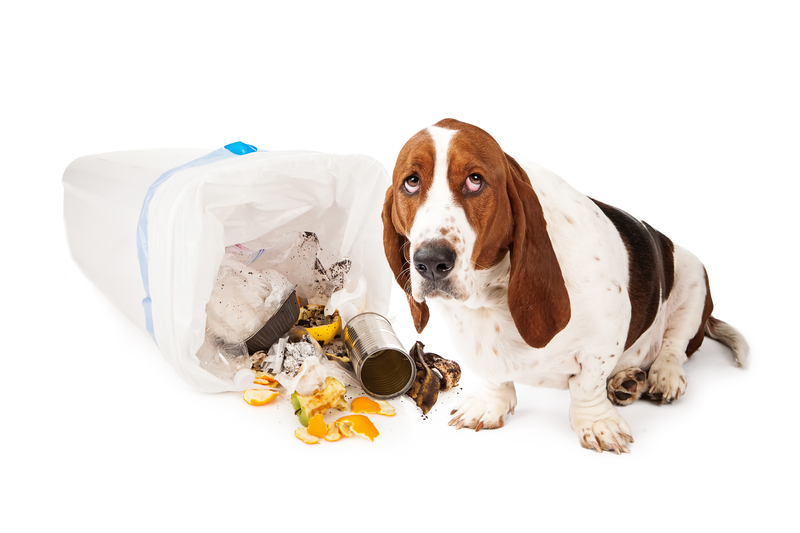Achieve Recycling Excellence at Home with Our Tips
Would you like to reduce your environmental footprint, prevent pollution, and keep your community greener? Recycling at home is one of the most rewarding ways to make a positive impact. In this guide, we'll explore strategies and tips to help you achieve recycling excellence at home and embrace a more sustainable lifestyle. Follow our comprehensive tips and become a champion for the planet, starting right where you live!
Why Home Recycling Matters
Recycling isn't just about sorting paper and plastics -- it's a significant effort that ripples through every level of society. When you excel at recycling at home, you:
- Reduce landfill waste
- Save natural resources
- Conserve energy
- Lower greenhouse gas emissions
- Inspire others to follow your example
Every can, bottle, or newspaper that you recycle can help build a more sustainable future. Mastering recycling excellence in your household is a key step toward a cleaner planet and a better quality of life.

Setting Up Your Home Recycling System
Choose the Right Bins
One of the keys to recycling success at home is to set up a user-friendly sorting system. Here's how to get started:
- Obtain separate bins for common materials: paper, cardboard, glass, plastic, and metal.
- Color-code your bins or use clear labels for easy recognition.
- Place bins in accessible locations -- kitchen, garage, or near the front door for maximum convenience.
- Consider a compost bin for food scraps and compostable materials.
Make Recycling Visible and Simple
Family participation is crucial. Place your recycling stations where everyone can see and use them effortlessly.
- Use posters or cheat-sheets listing accepted recyclable materials.
- Create a routine for emptying bins and dropping off recyclables at collection points.
_Tip: The easier you make it, the more likely your household will recycle properly and consistently._
Sorting: The Secret to Recycling Efficiency
Understand What Your Community Accepts
Not every recycling program is the same. To perfect your home recycling, consult your local municipality's guidelines. Typically, you can recycle:
- Papers -- Newspapers, magazines, office paper, and cardboard
- Plastics -- Look for symbols #1 (PET) and #2 (HDPE)
- Metals -- Aluminum, tin, and steel cans
- Glass -- Bottles and jars, often separated by color
Some items, like pizza boxes, Styrofoam, or certain plastics, might not be accepted. Double-check before tossing items into the bin!
Common Contaminants to Avoid
Nothing sabotages recycling efforts faster than contamination. To achieve recycling excellence, always:
- Rinse food containers to remove leftovers
- Avoid greasy or wet paper -- this can ruin an entire batch
- Remove caps or lids from bottles and jars (if required by your hauler)
- Don't put plastic bags in the recycling bin, unless your center specifically accepts them
Contaminants raise processing costs and can send whole truckloads of recyclables to the landfill. Paying attention to the details makes all the difference.
How to Recycle Less Obvious Materials at Home
Electronics (E-Waste)
- Many electronics contain toxins. Don't bin them--look for local e-waste collection events or dropsites.
- Retailers like Best Buy and Staples often offer electronics recycling programs.
Household Batteries and Bulbs
- Never toss batteries or bulbs in the regular trash or curbside bin.
- Check for designated municipality recycling drop-off spots or use programs like Call2Recycle.
Clothing and Textiles
- Gently used items can be donated to shelters or resale shops.
- Some cities offer textile recycling--check for neighborhood drop bins or retail partners like H&M.
Plastic Bags and Film
- Supermarkets often have bins at entrances for clean plastic bags, bread bags, and cereal liners.
- Avoid adding these to your curbside recycling--they usually require special handling.
Composting: The Next Level of Home Recycling
Why Compost?
Food scraps and yard waste make up about 30% of household garbage. Instead of tossing them in the trash, recycle food scraps at home through composting!
- Reduces methane emissions from landfills
- Enriches your garden soil
- Decreases your household's overall waste output
Simple Steps to Start Composting
- Choose a bin or pile in your backyard (or use a countertop composter for small spaces).
- Add greens (food scraps, coffee grounds) and browns (leaves, cardboard, shredded newspaper).
- Turn and moisten your pile regularly.
- Use finished compost to fertilize houseplants or your garden.
Composting is a natural form of recycling excellence that everyone can master at home!
Expert Tips for Achieving Home Recycling Excellence
Stay Informed and Educated
- Follow social media accounts or websites of local waste management companies.
- Attend community workshops on sustainable living and recycling tips.
- Bookmark municipality guidelines for easy reference.
Reduce First, Then Recycle
The best way to excel in home recycling is to generate less waste in the first place:
- Buy in bulk to reduce packaging
- Choose reusable bags, bottles, and containers
- Avoid single-use products whenever possible
Remember: The most effective material to recycle is the one you never use to begin with!
Get the Whole Family Involved
- Assign recycling stations and responsibilities to everyone, including kids.
- Turn recycling into a game or challenge.
- Celebrate successes--for example, when you reach a full month without contaminated bins.
Creating a culture of recycling excellence at home starts with group effort and shared responsibility.
Track Your Progress
- Keep a "waste journal" to monitor recycling habits and spot problem areas.
- Periodically review your waste output and set new goals for improvement.
Seeing tangible progress will keep you motivated to stick to your recycling goals and build on your achievements.
Common Mistakes to Avoid on Your Home Recycling Journey
- Wishcycling -- Placing non-recyclable items in the bin "just in case." When in doubt, check first!
- Lack of rinsing -- Dirty containers spoil recyclables and could cause contamination.
- Bagging recyclables -- Most curbside programs require loose items; bags jam machinery.
- Ignoring program updates -- Local rules can change; always stay updated.
Awareness is the first step toward excellence. Avoiding these pitfalls will keep your recycling program effective and efficient.

Advanced Tips for Recycling Like a Pro at Home
Find Specialty Drop-Offs for Hard-to-Recycle Items
- Use online databases or community groups to locate recycling centers for items like paints, chemicals, or hazardous waste.
- Take advantage of special collection dates organized by your city or neighborhood.
Spread the Word
Achieving recycling excellence in your household is contagious! Share your journey with neighbors, friends, or on social media. Provide tips and resources to help others level up their sustainability efforts as well.
Conclusion: Small Actions Lead to Big Change
Recycling excellence at home is not only possible--it's essential for a cleaner, healthier planet. With the right information, habits, and enthusiasm, you can significantly reduce waste and make a positive impact. Set up a smart sorting system, educate yourself and your family, and stay current with best practices.
Every bottle you rinse, every box you flatten, every right material in the right bin brings you closer to true sustainability. Put these actionable tips into practice, and you'll be well on your way to achieving recycling excellence at home. Start today--because every eco-friendly habit counts!